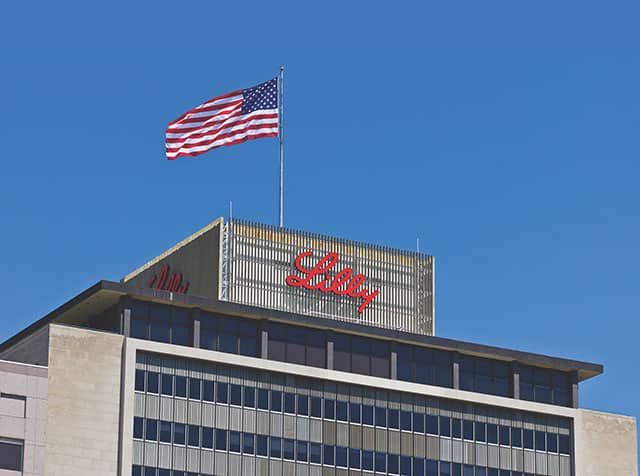
Eli Lilly is set to acquire private biotech company Disarm Therapeutics for an initial upfront payment of $135m, with a focus on developing treatment for neurological diseases.
Disarm’s focus is on the development of a new class of disease-modifying therapeutics for patients with axonal degeneration, which is indicated in a number of neurological disease and is known to cause severe sensory, motor and cognitive symptoms.
The biotech is working on the development of novel, potent inhibitors of the SARM1 protein. Disarm’s scientific founders – Jeffrey Milbrandt and Aaron DiAntonio – discovered that the SARM1 protein is a central driver of axonal degeneration, and Disarm’s SARM1 inhibitors are designed to directly prevent the loss of axons – the long cable of nerve cells that send out electrical impulses.
Lilly is set to acquire Disarm for an upfront payment of $135m, with shareholders set to be eligible for an additional $1.225bn in further payments for potential development, regulatory and commercial milestones resulting from successful new medicines resulting from the acquisition.
Once the acquisition is completed, Lilly will have access to Disarm’s arsenal of SARM1 inhibitors and will be able to advance them into preclinical and clinical development.
The ultimate aim will be to develop breakthrough treatment for patients with peripheral neuropathy and other neurological disease, including multiple sclerosis and amyotrophic lateral sclerosis (ALS).
“The scientific team at Disarm discovered an important and highly promising approach to combat axonal degeneration,” said Mark Mintun, vice president of pain and neurodegeneration research at Lilly.
“We will move quickly to develop their SARM1 inhibitors into potential medicines for peripheral neuropathy and neurological diseases, such as ALS and multiple sclerosis,” he added.
Lilly has previously tried its hand in neurodegeneration therapy development, but took a serious hit earlier this year when its promising potential Alzheimer’s disease treatment failed in a phase 3 trial.
The anti-amyloid candidate, solanezumab, failed to improve outcomes for patients with dominantly inherited Alzheimer’s disease (DIAD) in a trial readout earlier this year.
Solanezumab works by binding to soluble amyloid beta, allowing it to be cleared from the body before the amyloid plaques that characterise Alzheimer’s are formed in the brain.
“Disarm’s innovative approach to treating axonal degeneration holds tremendous promise for addressing a wide spectrum of neurological diseases, and we have made significant strides toward enabling potentially transformative therapies,” said Alvin Shih, chief executive officer of Disarm.




